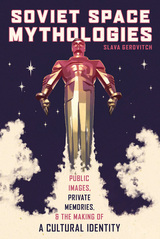2 books about Public Images

Media Madness
Public Images of Mental Illness
Otto F. Wahl
Rutgers University Press, 1997
Winner of the 1996 Gustavus Myers Award for an Outstanding Book on Human Rights in North America
"Media Madness is a most timely, readable, and useful book, exposing, as it does, the myths about mental illness that most of us live by--myths that are as destructive as they are pervasive. Wahl is especially good at showing, in detail, the many ways in which false views of mental illness, purveyed in the media, shape the ways even the most enlightened of us view the world around us. A most thoughtful, stimulating book, from which I learned a great deal." --Jay Neugeboren, author of Imagining Robert: My Brother, Madness, and Survival--A Memoir
"An outstanding book . . . well-researched . . . it is 'must reading.'" --Laurie Flynn, former executive director, National Alliance for the Mentally Ill "The rampant inaccuracies about mental illnesses in newspapers, magazines, movies, and books make it clear that this is not merely stereotyping, but rather a pervasive ignorance. Dr. Wahl's book goes far to explain where the errors are and to educate and sensitize the reader to frequent inaccuracies. In addition, the book is very readable." --NAMI Advocate
"What do the media have to do with one's perception of mental illness? Wahl takes an in-depth look a how unfavorable public images of mental illness are often inaccurate. Statistics show that one out of every five people in the U.S. will experience a psychiatric illness. With boldness and sensitivity, Wahl takes a powerful look at the inaccurate stereotypes created by the media."
"Media Madness is a most timely, readable, and useful book, exposing, as it does, the myths about mental illness that most of us live by--myths that are as destructive as they are pervasive. Wahl is especially good at showing, in detail, the many ways in which false views of mental illness, purveyed in the media, shape the ways even the most enlightened of us view the world around us. A most thoughtful, stimulating book, from which I learned a great deal." --Jay Neugeboren, author of Imagining Robert: My Brother, Madness, and Survival--A Memoir
"An outstanding book . . . well-researched . . . it is 'must reading.'" --Laurie Flynn, former executive director, National Alliance for the Mentally Ill "The rampant inaccuracies about mental illnesses in newspapers, magazines, movies, and books make it clear that this is not merely stereotyping, but rather a pervasive ignorance. Dr. Wahl's book goes far to explain where the errors are and to educate and sensitize the reader to frequent inaccuracies. In addition, the book is very readable." --NAMI Advocate
"What do the media have to do with one's perception of mental illness? Wahl takes an in-depth look a how unfavorable public images of mental illness are often inaccurate. Statistics show that one out of every five people in the U.S. will experience a psychiatric illness. With boldness and sensitivity, Wahl takes a powerful look at the inaccurate stereotypes created by the media."
[more]

Soviet Space Mythologies
Public Images, Private Memories, and the Making of a Cultural Identity
Slava Gerovitch
University of Pittsburgh Press, 2015
Winner, 2021 Gardner-Lasser Aerospace History Literature Award
From the start, the Soviet human space program had an identity crisis. Were cosmonauts heroic pilots steering their craft through the dangers of space, or were they mere passengers riding safely aboard fully automated machines? Tensions between Soviet cosmonauts and space engineers were reflected not only in the internal development of the space program but also in Soviet propaganda that wavered between praising daring heroes and flawless technologies. Soviet Space Mythologies explores the history of the Soviet human space program within a political and cultural context, giving particular attention to the two professional groups—space engineers and cosmonauts—who secretly built and publicly represented the program. Drawing on recent scholarship on memory and identity formation, this book shows how both the myths of Soviet official history and privately circulating counter-myths have served as instruments of collective memory and professional identity. These practices shaped the evolving cultural image of the space age in popular Soviet imagination. Soviet Space Mythologies provides a valuable resource for scholars and students of space history, history of technology, and Soviet (and post-Soviet) history.
From the start, the Soviet human space program had an identity crisis. Were cosmonauts heroic pilots steering their craft through the dangers of space, or were they mere passengers riding safely aboard fully automated machines? Tensions between Soviet cosmonauts and space engineers were reflected not only in the internal development of the space program but also in Soviet propaganda that wavered between praising daring heroes and flawless technologies. Soviet Space Mythologies explores the history of the Soviet human space program within a political and cultural context, giving particular attention to the two professional groups—space engineers and cosmonauts—who secretly built and publicly represented the program. Drawing on recent scholarship on memory and identity formation, this book shows how both the myths of Soviet official history and privately circulating counter-myths have served as instruments of collective memory and professional identity. These practices shaped the evolving cultural image of the space age in popular Soviet imagination. Soviet Space Mythologies provides a valuable resource for scholars and students of space history, history of technology, and Soviet (and post-Soviet) history.
[more]
READERS
Browse our collection.
PUBLISHERS
See BiblioVault's publisher services.
STUDENT SERVICES
Files for college accessibility offices.
UChicago Accessibility Resources
home | accessibility | search | about | contact us
BiblioVault ® 2001 - 2024
The University of Chicago Press









